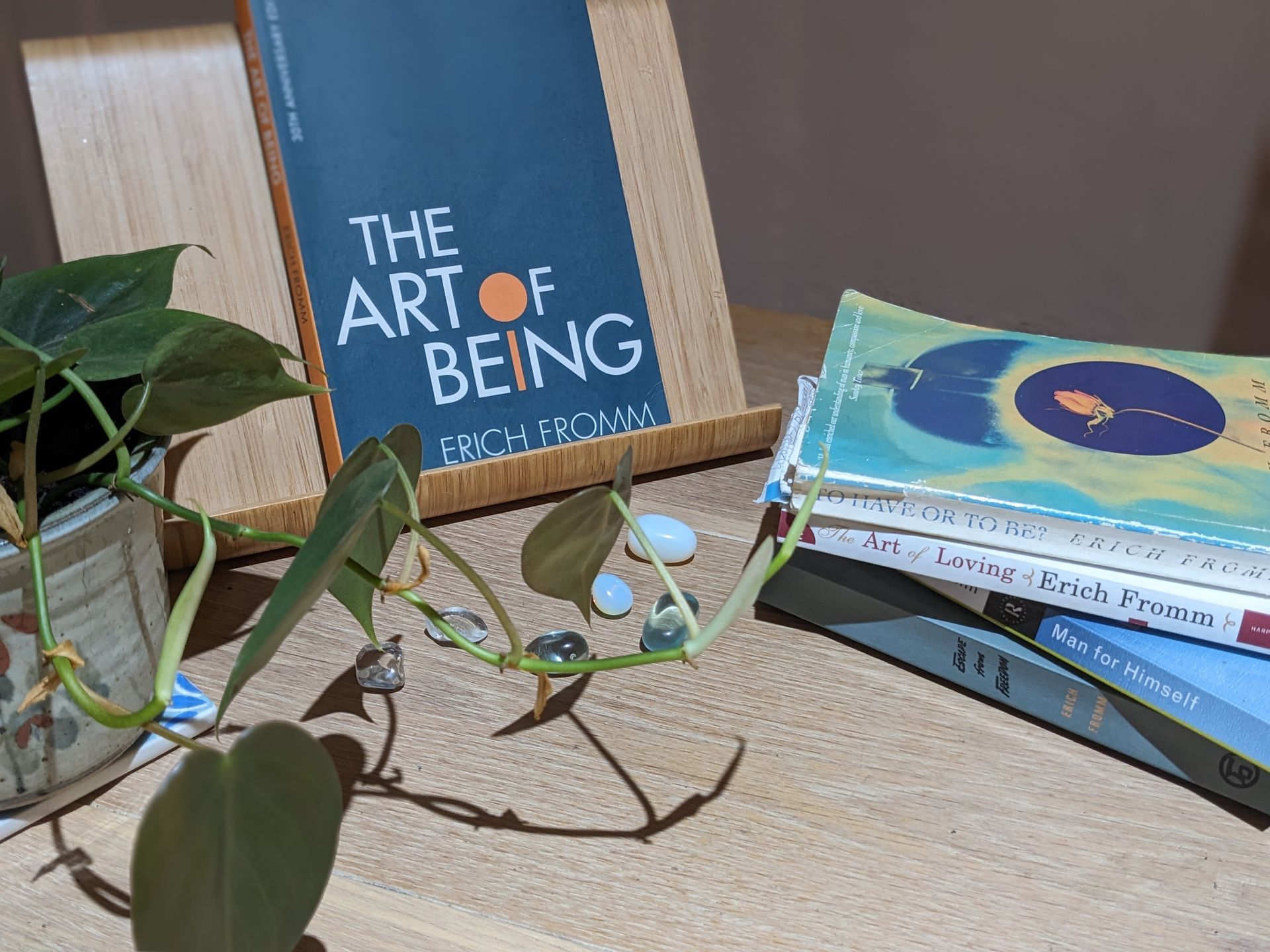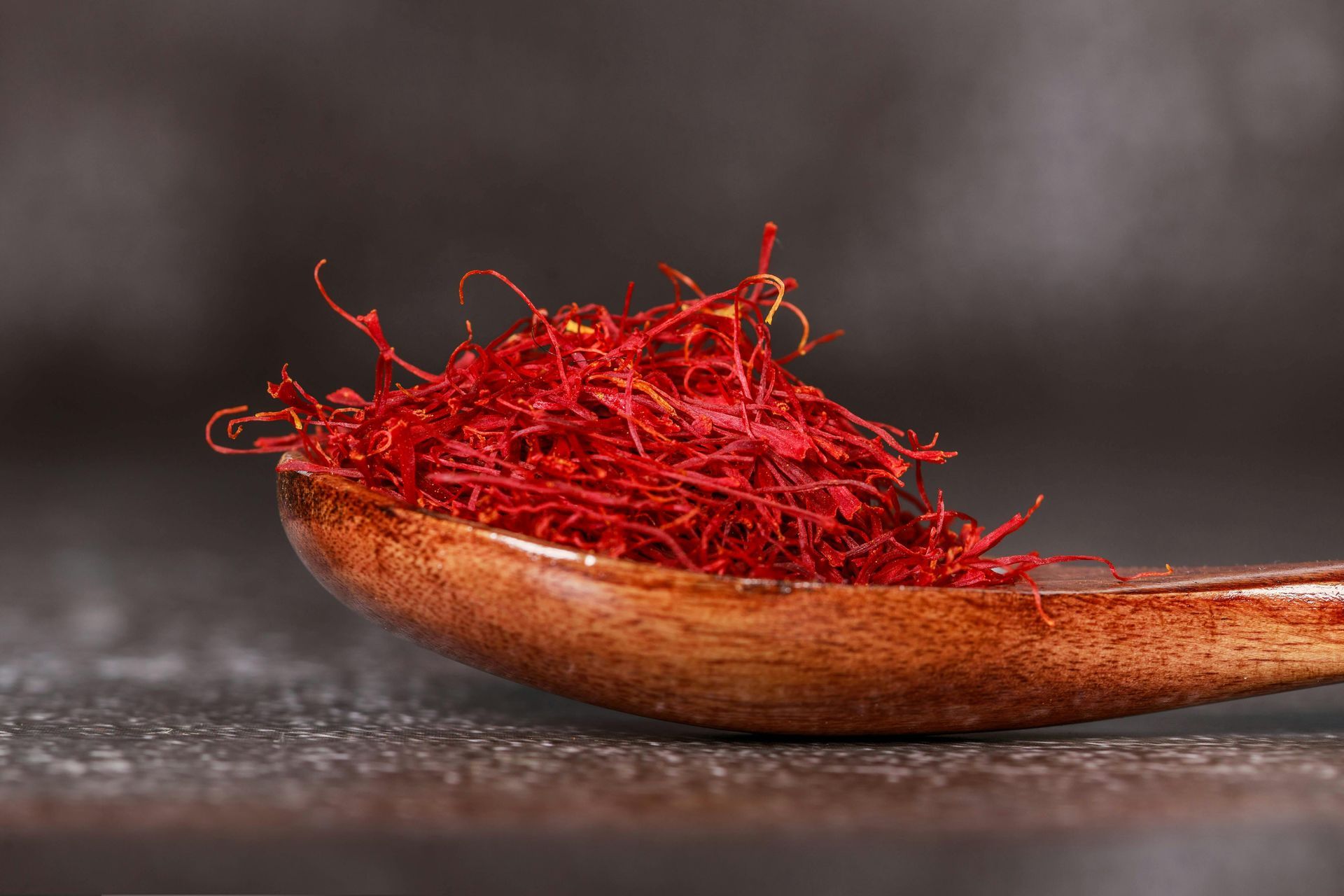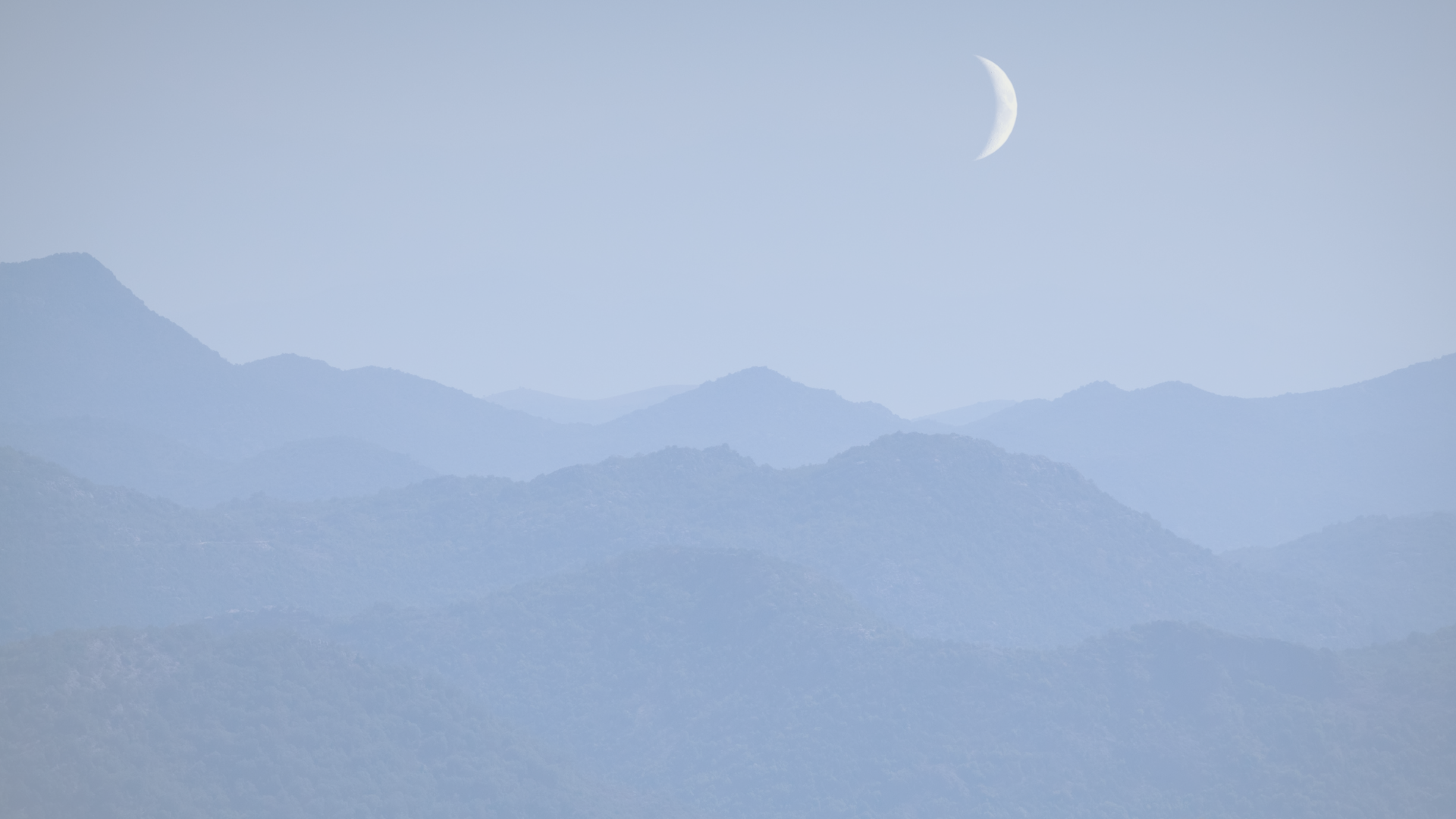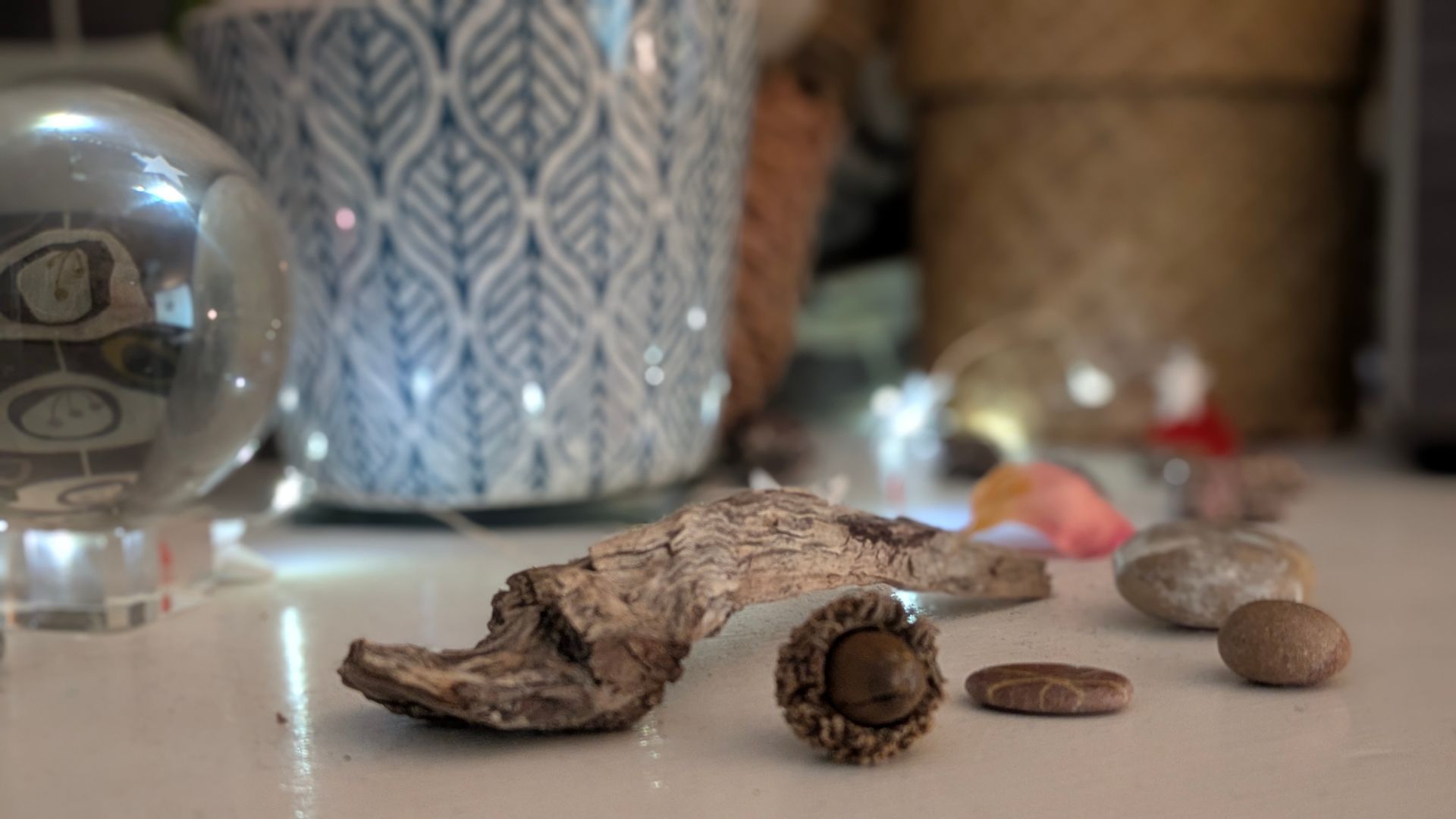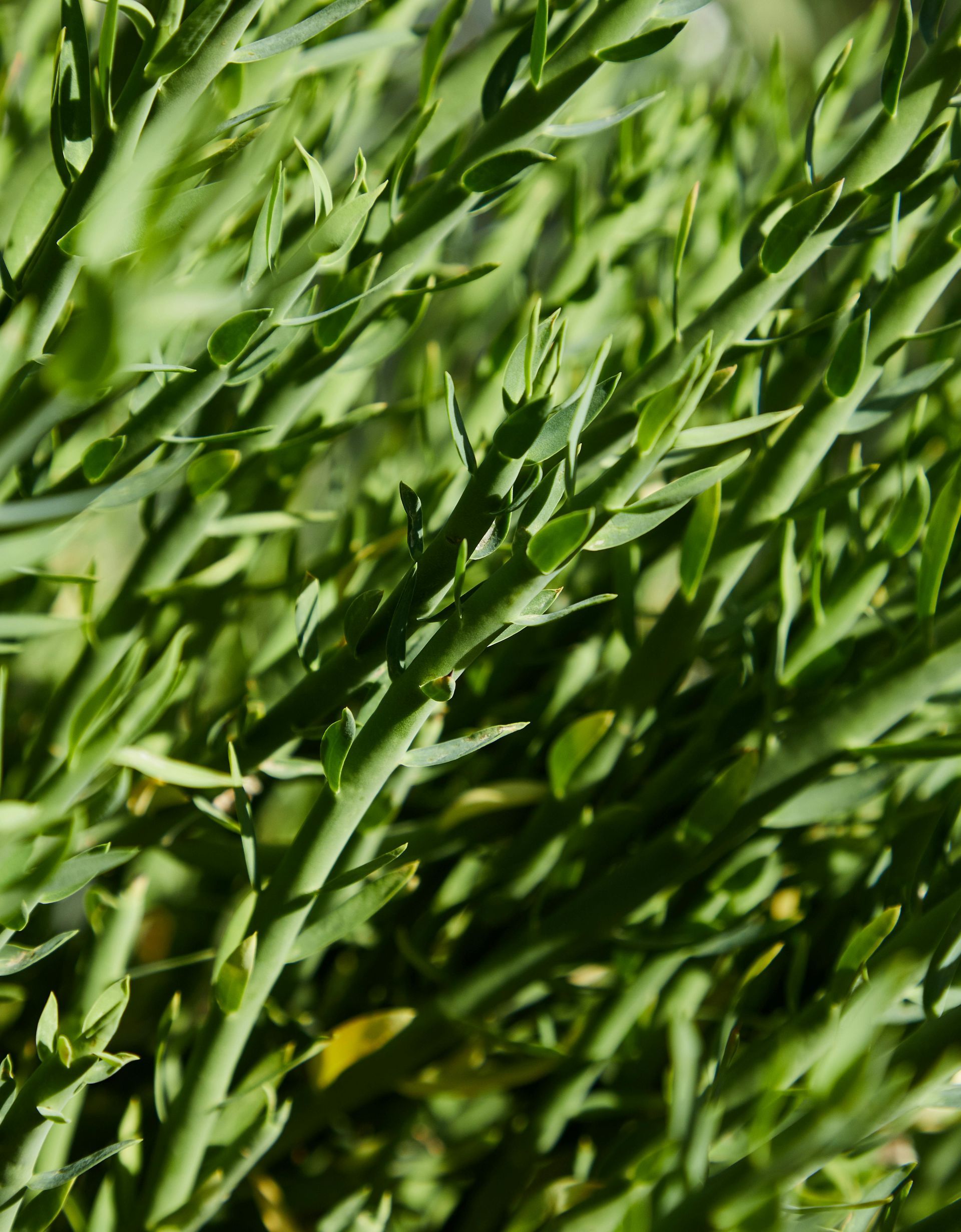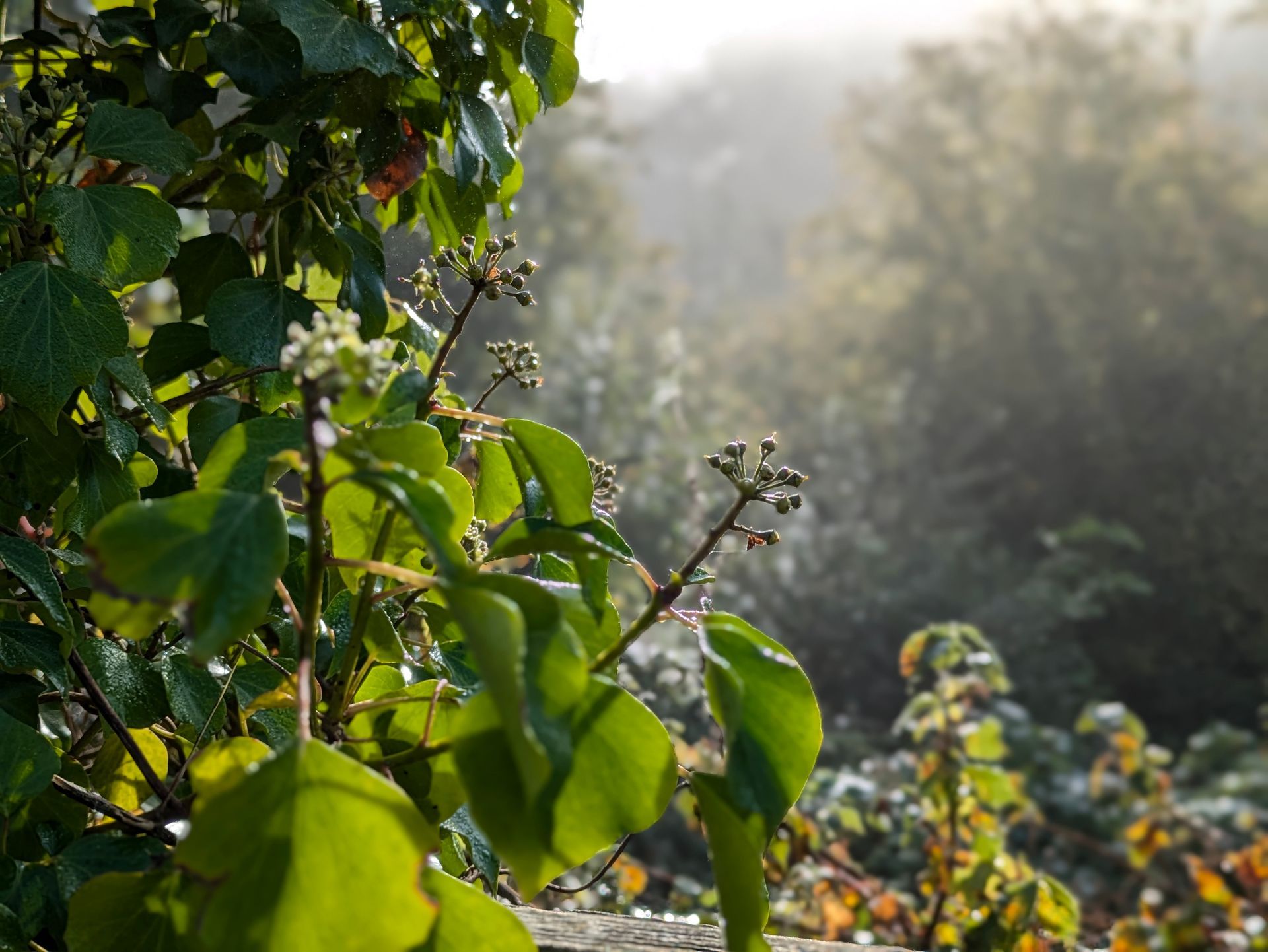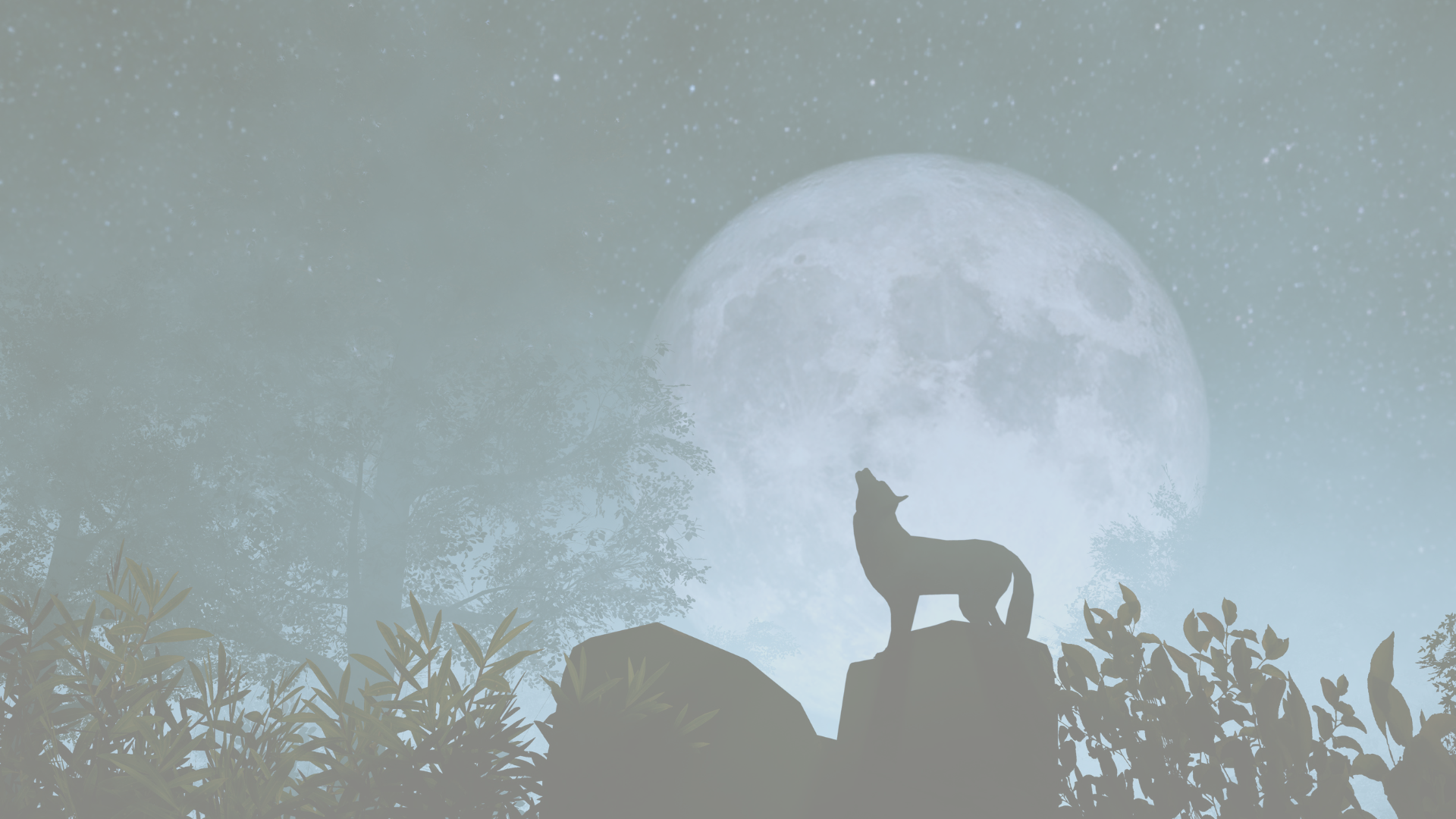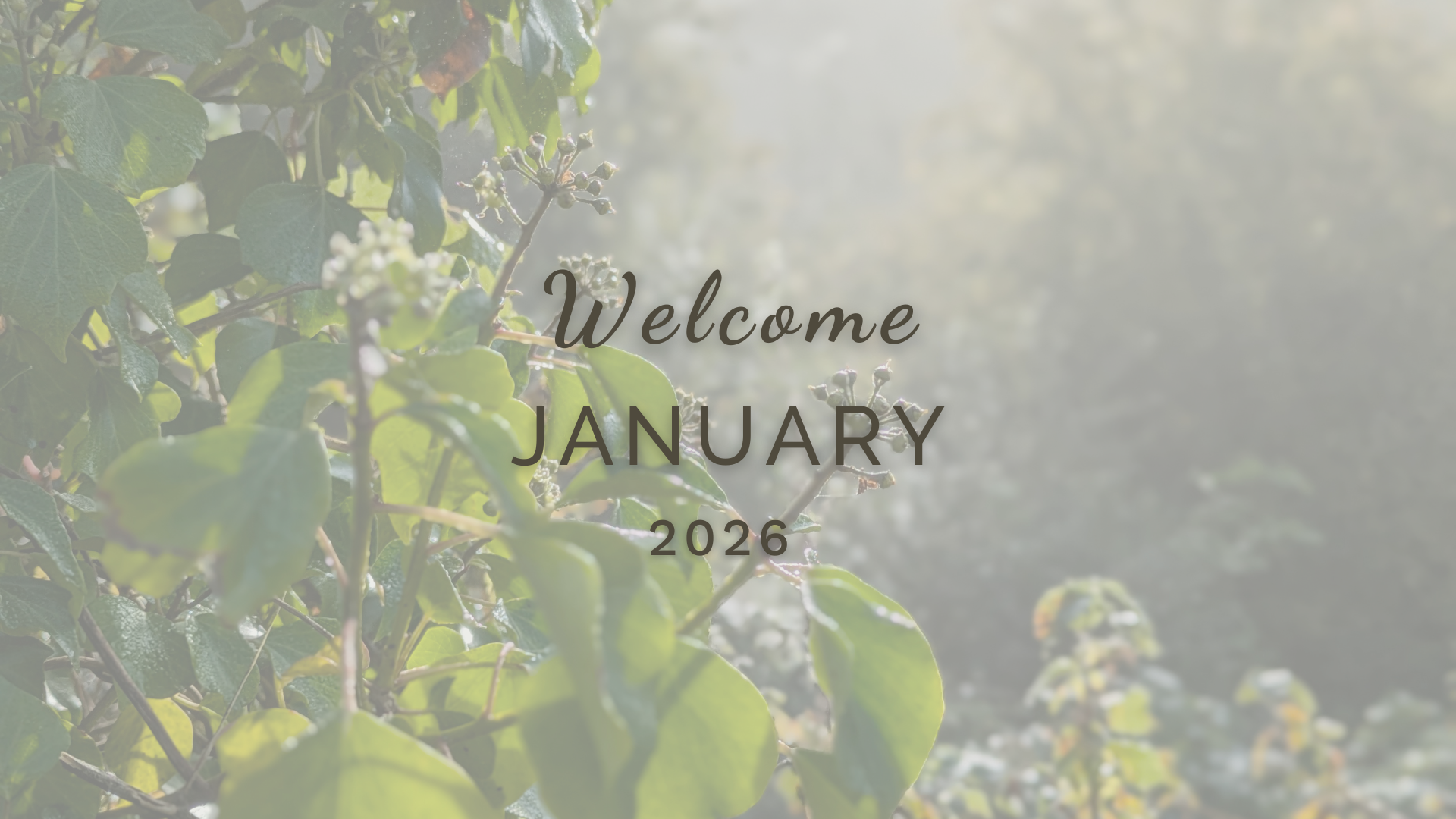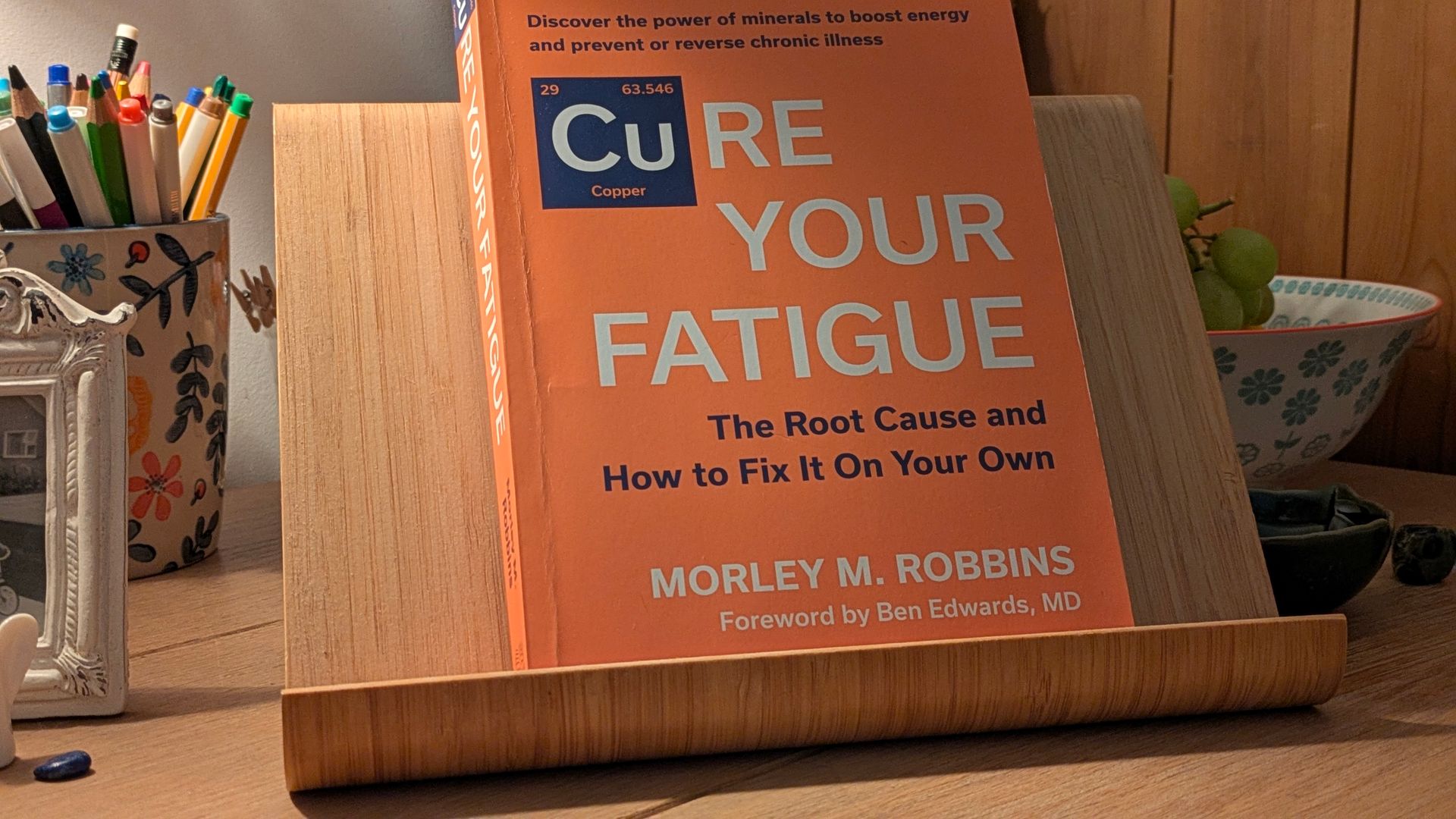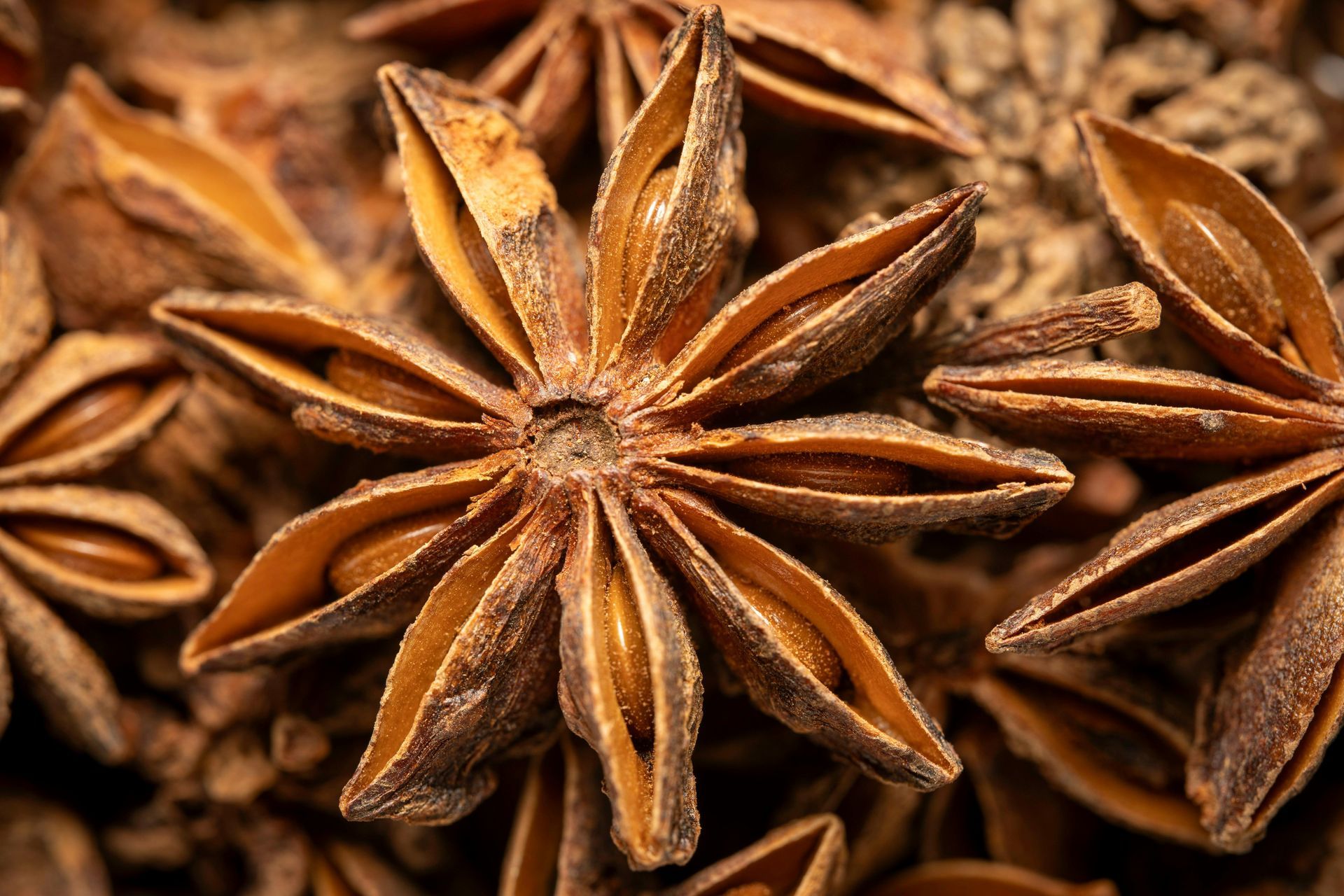The Nature of Biophilia and Humanistic Potentiality
The science behind our need to be closer to Nature and creating environments where human beings can thrive
This post is a prelude to a series of reviews on five of Erich Fromm's books exploring Human Nature with scientific knowledge on what it means to love ourselves and each other, and why we need to live closer to Nature in natural environments in order to thrive.
The books I have re-read after many years include To Have or To Be, The Art of Being, The Art of Loving, Man For Himself and Escape From Freedom. They are listed at the end of this post.
Today, I am sharing two main concepts originated by Erich Fromm that represent the science behind why we need to live closer to Nature and the importance of creating humanistic environments that nurture and support our need to live in harmony with the natural world.
Who is Erich Fromm?
Erich Fromm was born in Frankfurt, Germany on 23 March 1990. He was a sociologist, philosopher, historian, psychoanalyst, economist and anthropologist, as well as a lover of human life, Nature and poetry. His work informed and enhanced his understanding of the nature of culture and the psychology of human beings.
His plethora of books and papers reveal fundamental truths that many of us may not have previously thought of or known about. As with all, albeit very few, masterful thinkers who have the best interests of humanity at heart, Erich's work holds its truth, providing clear explanations and helpful ideas for creating a loving humanistic way of being for everyone. This is as relevant to our current situation as it was back then.
As we know, information that does not fit into the mainstream narrative, or the nonsensical scientific consensus, is not promoted and very often discredited or taken out of circulation. This has been the case for centuries which is why it is so important for us to be on the look out for truths that have stood the time and bring them back into the fold.
What is Biophilia?
Biophilia is a universal truth. It is a term first used by Erich Fromm in 1973 to describe the intrinsic human connection we feel towards Nature and other living organisms.
Biophilia is more than a philosophy. It's a biophilic framework that supports cognitive function, physical health and psychological wellbeing. It explains why our connection to Nature is vital for us to survive, enjoy life and grow naturally as intended.
It explains why biophilia is an essential part of being human and is required for us to fulfil our human potentiality or, as Abraham Maslow describes it, to self actualise into the creative, productive, loving and contented human beings we are meant to be.
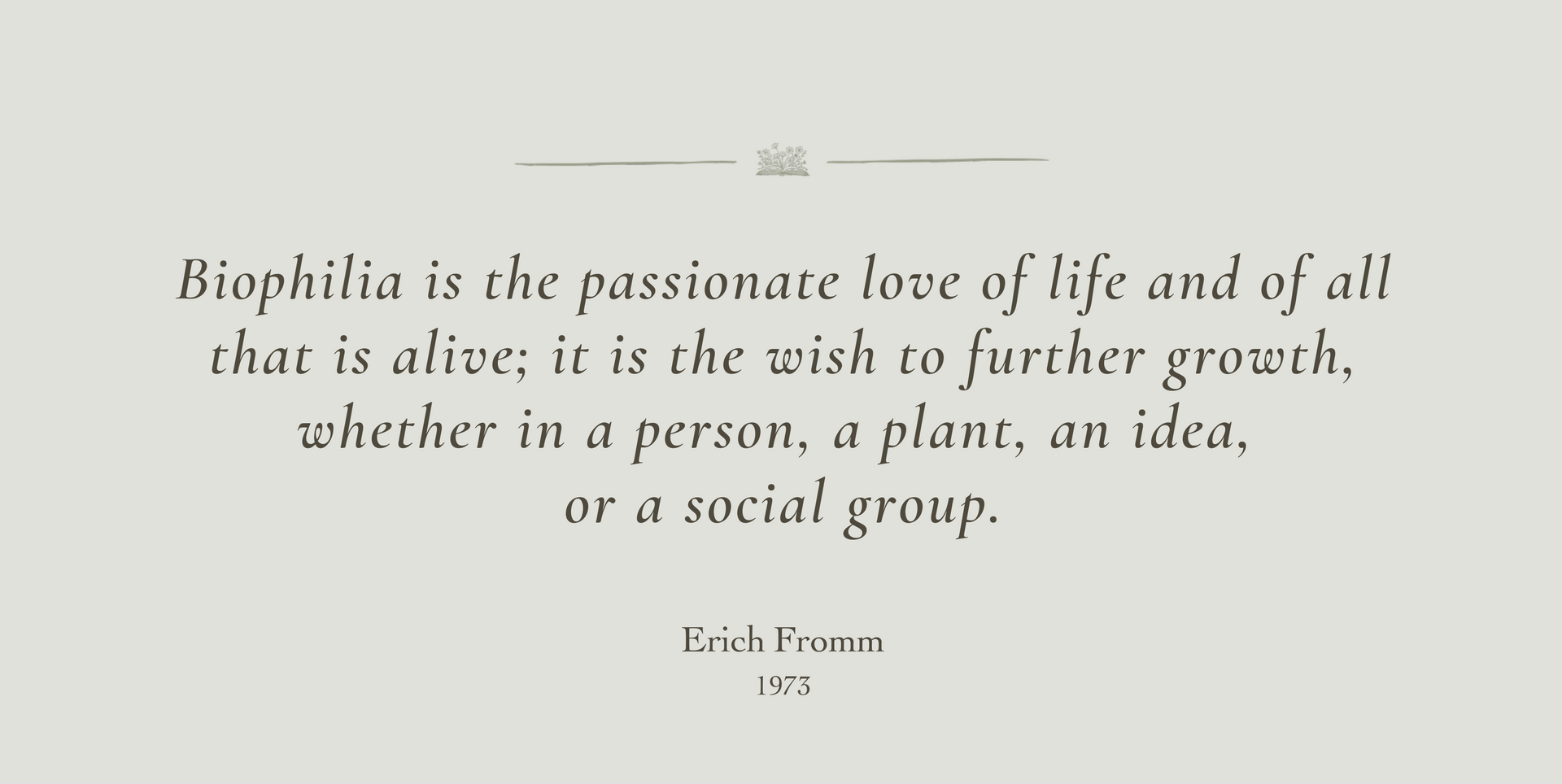
Our connection with Nature
The concept of biophilia was further developed by biologist Edward O Wilson in his book On Human Nature (1978) and Biophilia (1984). Here he explores the idea that humans possess an innate affinity for the natural world, shaped over millions of years of evolution.
Edward explains why, as a species, we are naturally drawn to the diversity of life forms, ecosystems, and the overall beauty of the natural world. And why it's not just a cultural or intellectual appreciation, rather a fundamental aspect of our biology, psychology and spirituality.
Edward Wilson goes on to say that understanding and fostering our connection with Nature can have profound implications for human wellbeing, mental health and our overall quality of life.
As Erich Fromm states:
Happiness is the indication that man has found the answer to the problem of human existence: the productive realisation of his potentialities and thus, simultaneously, being one with the world and preserving the integrity of the self.
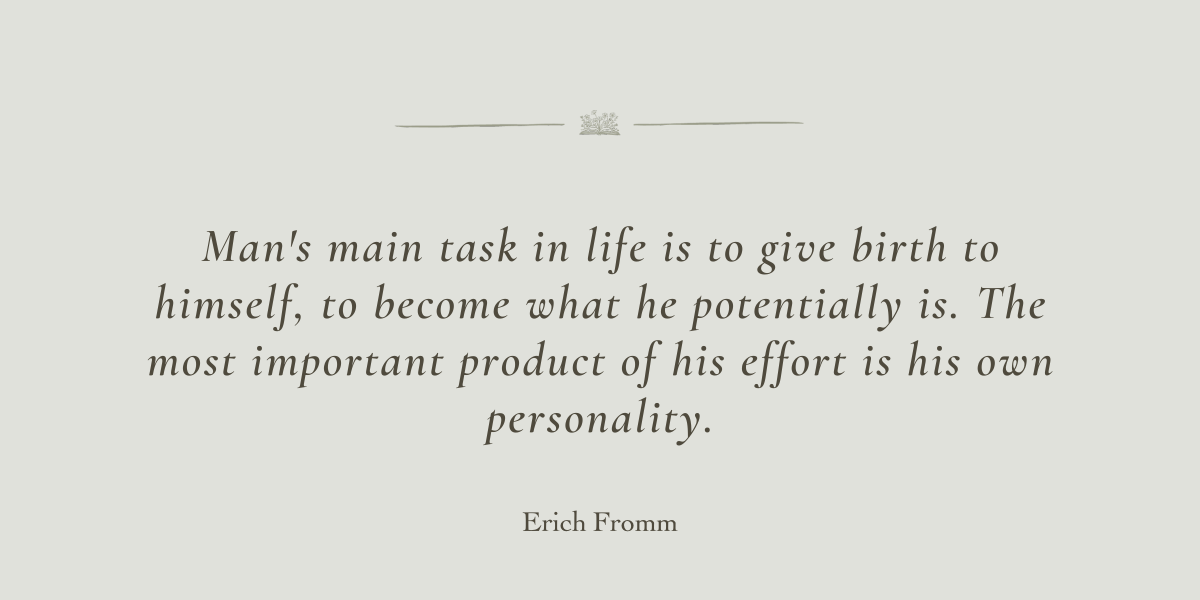
What is humanism?
The concept of humanism was introduced by Carl R Rogers (1902–1987). He was one of the founders of Humanistic Psychology based on his person-centered approach to psychotherapy and the concept of unconditional positive regard.
The best definition for humanism is a system of thought centred on the notion of the rational, autonomous self, ignoring the conditioned nature of the individual.
Erich Fromm fully supported self-realisation rather than obedience to authority. He saw life as a contradiction since humans are both a part of Nature and separate from it. He identified existential needs that can only be fulfilled through our connection with Nature which includes relatedness, creativity, rootedness, identity and a frame of orientation.
Erich knew that to realise our humanistic potentiality we needed to live closer to and in harmony with Nature. His premise supports the fact that we each have a God-given right to live on planet Earth in harmony with Nature with access to clean air and water.
How biophilia supports humanistic potentiality
To live in supportive environments where human beings can thrive means creating our own humanistic environments where we can live in peace as sovereigns with the beauty of Nature around us. It means increasing the quality of biophilia in our own lives and finding ways to extend this to our communities and planet Earth as a whole.
By doing so we are not only showing others what is possible, we are making it possible for others to do the same, and to feel motivated by the possibilities.
A love of life and living things
Research tells us we have a deeply engrained love for Nature that starts from when we are born, unfolding into intuitive gifts, creative talent and a natural drive to want to feel a connection with Nature through all our senses and to reap the benefits as a result. It’s a natural requirement (consciously and sub-consciously) for us to want to experience and enjoy Nature in all her myriad forms.
This essential need is imprinted into our DNA and to go without starves us of vital nourishment and blocks our natural growth. We show remarkable resilience, of course, and this is why we have thrived as a species.
We have survived because we are able to tune-in to locate the most fertile land, grow the healthiest food, act on our best instincts and ideally, listen to our moral compass. We have learned how to nurture ourselves through every kind of challenge, crisis and opportunity.
This has enabled us to adapt and perptuate new life. Our ancestors and Indigenous Peoples have done this in alignment with Nature's natural cycles through the seasons and they are the custodians of this beautiful Earth who pass their biophilic wisdom on through the generations.
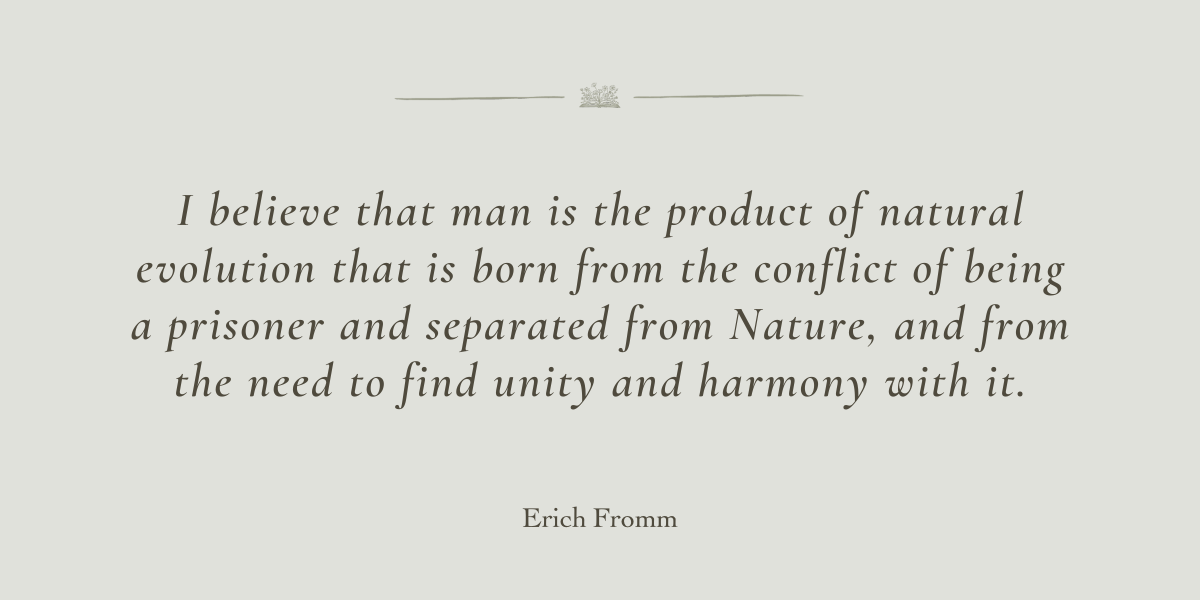
The need to create humanistic culture
When we know that to realise our humanistic potentiality as living beings in Nature (or to self actualise as Abraham Maslow put it), we need to think of our living environments in terms of biophilia.
We need to imagine. design and create the kind of environments or cultures we need and desire to nurture, support and empower our connection with Nature. Only then can we can grow, thrive and fulfil our innate creative potential.
Knowing the power of mind, it's a great thing for us to focus on. What would it be like to live on this Earth as free sovereigns who respect, embrace and love life, and who enjoy working and co-creating together in harmony with Nature?
Learning from Erich Fromm
I hope some of these ideas resonate with you and clarify the need for us to engage more with Nature and work together to design supportive natural environments where we can live in harmony with Mother Earth knowing what we know and adapating our resources accordingly.
We can learn how to create a more humanistic way of living that fulfils our biophilic needs and benefits people as sovereign individuals who are part of their local community and the wider community of the world.
Thank you for reading and I look forward to seeing you again soon.
Sue Cartwright
Spiral Leaf
Further reading
The following books represent a body of work I have re-read over the last few months to extract essential knowledge that I hope will be helpful.
Links take you to my affiliate bookshop where you can purchase books online. A small commission may be paid to Spiral Leaf at no extra cost to you.
The need for humans beings to live life to the full in creative and supportive environments designed to actualise human potential; the trajectory of destruction caused by the having mode of consumerism leading to where we are today.
Elevating living a free and creative life to an artform with ideas on how to transition from a having to a being way of living.
Elevating loving ourselves and each other unconditionally to an artform with ideas on how to transition from a competitive to a supportive way of life.
Knowing how we can best look after ouselves, stay true to ourselves and live responsibly according to shared ethical values as self-governing sovereigns.
Escape From Freedom (not an affiliate link)
The choice between depending on the state where we relinquish our power to self-appointed authoritarians or choosing freedom or sovereignty which means taking responsibility for ourselves and the way we treat others.
Thank you for sharing!
for you, for me and for Mother Nature
Latest Posts
All Posts

